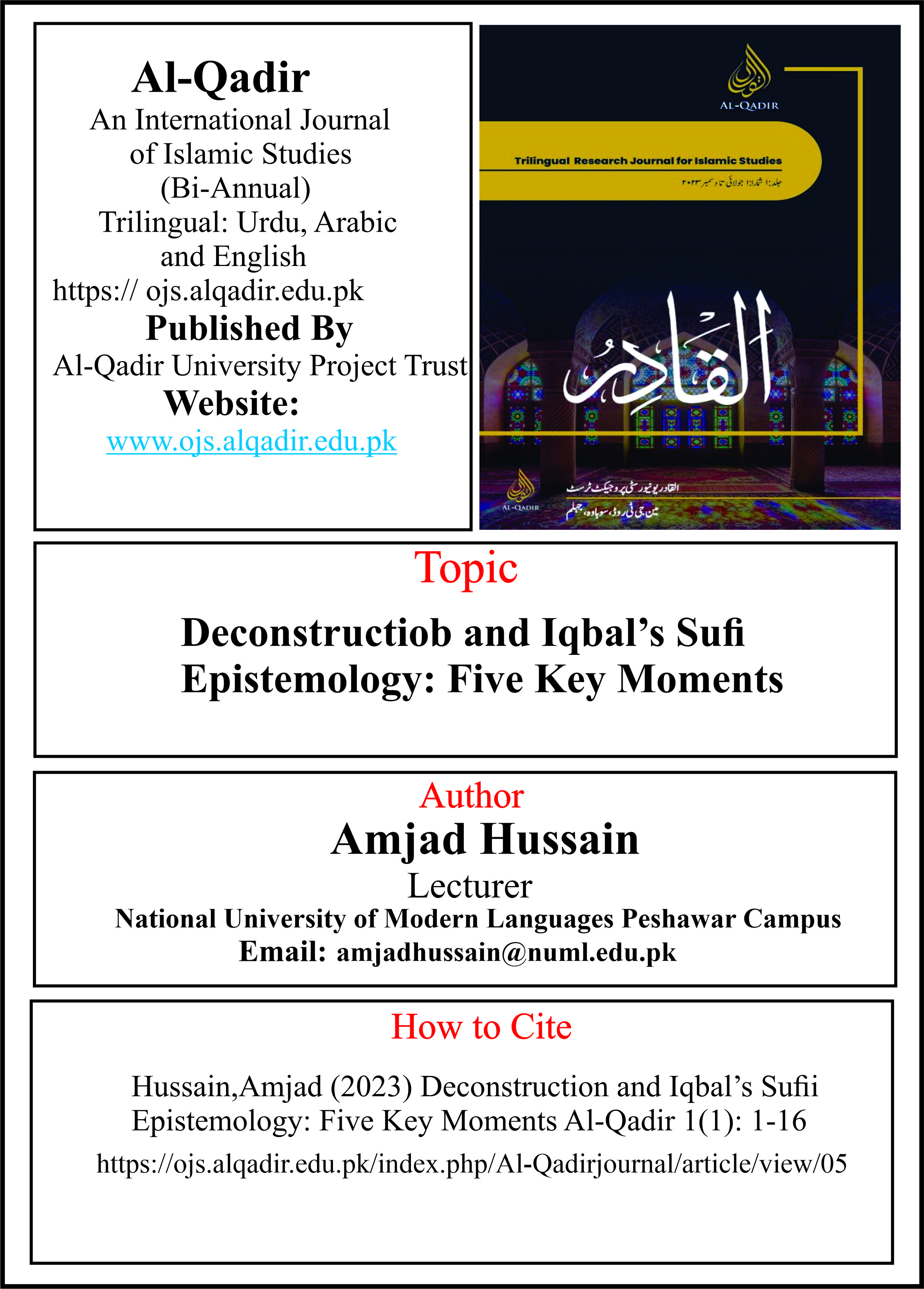DECONSTRUCTION AND IQBAL’S SUFI EPISTEMOLOGY: FIVE KEY MOMENTS
Abstract
Abstract
There is a distinct approach to Deconstruction in Pakistani academia and intelligentsia, i.e., nihilistic, meaning-denying. This approach is flawed. This paper shows that Derrida’s concept of Deconstruction has got nothing to do with this approach. It contends that Deconstruction, as conceived by Derrida, is a further stamp of authentication on the philosophical foundations of Iqbal’s Sufi epistemology. It shows the five key theoretical and philosophical moments in Derrida’s thought that establish beyond any shadow of doubt that Iqbal’s Sufi epistemology is best seen in consonance with rather than in opposition with Deconstruction as is the norm not only in Pakistani academia but in contemporary Muslim philosophy as well. There are very deep philosophical affinities between Derrida’s intellectual genealogy and Iqbal’s. These deeper laying philosophical affinities have remained ignored under pressure from a readymade Anglo-American version of Deconstruction. This is the biggest Houdini act that “capitalist modernity” has ever pulled. Contemporary Muslim scholarship has fallen for this flawed version of Deconstruction ignoring thereby one of the most important epochs in contemporary western philosophy (that Iqbal called our heritage) in its poststructuralist and postmodern shifts. This paper makes a case for a long-delayed paradigm shift in contemporary Muslim scholarship by delineating these five key moments in Derrida’s concept of Deconstruction that Muslim philosophy has been made to miss. They give us food for thought that might help Pakistani Muslim society, academia, and contemporary Muslim philosophy come out of the effects of Houdini’s civilizational and cultural magic.
Key Words: Iqbal, Sufi Epistemology, Deconstruction, Derrida, Levinas.





